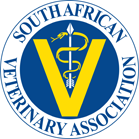
Original Research
Two sampling techniques for game meat
Submitted: 04 July 2012 | Published: 20 March 2013
About the author(s)
Maretha van der Merwe, Department of Environmental Health, Tshwane University of Technology, South AfricaPiet J. Jooste, Department of Biotechnology and Food Technology, Tshwane University of Technology, South Africa
Louw C. Hoffman, Department of Animal Sciences, University of Stellenbosch, South Africa
Frikkie J. Calitz, Agricultural Research Council Biometry Unit, Pretoria, South Africa
Abstract
A study was conducted to compare the excision sampling technique used by the export market and the sampling technique preferred by European countries, namely the biotrace cattle and swine test. The measuring unit for the excision sampling was grams (g) and square centimetres (cm2) for the swabbing technique. The two techniques were compared after a pilot test was conducted on spiked approved beef carcasses (n = 12) that statistically proved the two measuring units correlated. The two sampling techniques were conducted on the same game carcasses (n = 13) and analyses performed for aerobic plate count (APC), Escherichia coli and Staphylococcus aureus, for both techniques. A more representative result was obtained by swabbing and no damage was caused to the carcass. Conversely, the excision technique yielded fewer organisms and caused minor damage to the carcass. The recovery ratio from the sampling technique improved 5.4 times for APC, 108.0 times for E. coli and 3.4 times for S. aureus over the results obtained from the excision technique. It was concluded that the sampling methods of excision and swabbing can be used to obtain bacterial profiles from both export and local carcasses and could be used to indicate whether game carcasses intended for the local market are possibly on par with game carcasses intended for the export market and therefore safe for human consumption.
Keywords
Metrics
Total abstract views: 3436Total article views: 12220
Crossref Citations
1. Microbial quality of frozen Nile crocodile (Crocodylus niloticus) meat samples from three selected farms in Zimbabwe
Tsitsi B. Makanyanga, Gideon Mutema, Norman L. Mukarati, Sylvester M. Chikerema, Pious V. Makaya, Shuvai Musari, Gift Matope
International Journal of Food Microbiology vol: 170 first page: 44 year: 2014
doi: 10.1016/j.ijfoodmicro.2013.10.020
